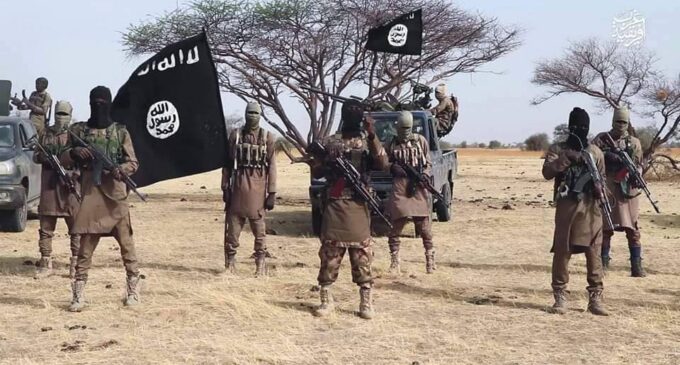The Resurgence of Violence: Examining the Deadly Bombing in Borno State
The Islamic State West Africa Province (ISWAP) has claimed responsibility for a devastating bombing in Borno State, Nigeria, which tragically took the lives of 26 travelers. The incident, which occurred on Monday, involved an improvised explosive device (IED) detonated under a moving pickup van. This horrific attack underscores the persistent security challenges facing the region and highlights the urgent need for enhanced counterterrorism measures.
The bombing took place near Furunduma village as the vehicle, an Isuzu pickup van, was en route from Kala-Balge to Gamboru Ngala Local Government Area. The explosion resulted in the deaths of 16 men, four women, and six children. The driver and two other passengers survived the blast but sustained injuries and were transported to a local hospital for treatment. This attack is not an isolated incident; it follows a similar IED attack on the Maiduguri-Damboa Road just two weeks prior, which killed eight and injured 11. These recurring attacks demonstrate the persistent threat posed by insurgent groups in the region and the vulnerability of civilians to their violent acts.
The repeated use of IEDs as a tactic of terror underscores the challenges faced by security forces in combating these groups. IEDs are relatively easy to construct and deploy, making them a readily available weapon for insurgents. The ability to conceal these devices along roadways makes them particularly dangerous for civilian populations, who often have little warning before an explosion occurs. The targeting of civilian vehicles further highlights the indiscriminate nature of these attacks and the intent to sow fear and disrupt normal life in the region.
The claim of responsibility by ISWAP adds another layer of complexity to the ongoing conflict in Northeast Nigeria. While Boko Haram has historically been the dominant insurgent group in the region, ISWAP has emerged as a significant threat in recent years. The two groups, though sharing similar ideologies, have sometimes operated independently and even clashed with each other. ISWAP’s claim in this instance suggests a potential shift in the dynamics of the conflict and raises concerns about the group’s growing influence and operational capabilities. Understanding the motivations and objectives of both groups is crucial for developing effective counterterrorism strategies.
The Nigerian government faces a multifaceted challenge in addressing the root causes of the insurgency and preventing further attacks. Poverty, unemployment, and lack of access to education and basic services create fertile ground for extremist ideologies to take root. Addressing these socio-economic issues is critical to undermining the appeal of groups like ISWAP and Boko Haram. Simultaneously, security forces must enhance their intelligence gathering capabilities to identify and disrupt planned attacks, as well as improving their ability to detect and disable IEDs.
The international community also has a role to play in supporting Nigeria’s efforts to counter terrorism. This support can take various forms, including sharing intelligence, providing training and equipment to security forces, and assisting in the development of community-based programs aimed at countering violent extremism. Collaboration between regional and international partners is essential for tackling the cross-border dimensions of the conflict and preventing the spread of extremist ideologies. A comprehensive, coordinated strategy that addresses both the security and socio-economic dimensions of the crisis is essential for achieving lasting peace and stability in the region. The recent attacks are a stark reminder of the ongoing threat and the urgent need for concerted action.














